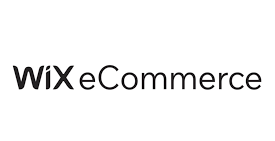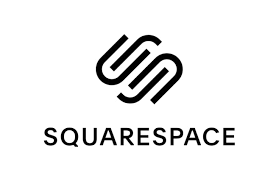Top 7 E-commerce Platforms to Choose From

Choosing the right e-commerce platform is critical to the success of your online business. With so many options available today, it can be challenging to determine which one best fits your needs. Let’s explore the top seven e-commerce platforms, looking at their features, pros and cons:
1. Shopify
Overall Score: 4.8/5
Shopify is one of the most popular e-commerce platforms globally, known for its ease of use and extensive features. It caters to businesses of all sizes and offers a range of customizable templates and plugins.
Pros:
- User-friendly interface
- Wide range of themes and plugins
- Excellent customer support
- Integrated payment options
- Strong SEO capabilities
Cons:
- Monthly fees can add up
- Transaction fees unless using Shopify Payments
- Limited customization without coding knowledge
2. WooCommerce
Overall Score: 4.7/5
WooCommerce is a powerful e-commerce plugin for WordPress, making it a great option for those familiar with the WordPress environment. It’s highly customizable and free to use, although some extensions and themes come at a cost.
Pros:
- Free to use
- Highly customizable
- Large community and extensive documentation
- Seamless integration with WordPress
Cons:
- Requires WordPress hosting
- Can be complex for beginners
- Additional costs for themes and extensions
3. BigCommerce 
Overall Score: 4.6/5
BigCommerce is a robust platform suitable for businesses looking to scale. It offers advanced features out of the box, making it a great option for growing businesses.
Pros:
- No transaction fees
- Extensive built-in features
- Strong SEO performance
- Supports multi-channel selling
Cons:
- Higher pricing tiers
- Limited free themes
- Can be overwhelming for small businesses
4. Magento, now Adobe Commerce
Overall Score: 4.3/5
Adobe Commerce offers a powerful and flexible platform suitable for large enterprises with complex requirements. Its advanced features and scalability make it a top choice for businesses looking to grow significantly. It lets you personalize B2B and B2C offerings across different brands.
Pros:
- Highly customizable and scalable
- Extensive feature set
- Strong community support
- Excellent B2B & B2C capabilities
Cons:
- High cost for managed services
- Requires significant technical expertise
5. Wix eCommerce 
Overall Score: 4.2/5
Wix eCommerce is a user-friendly platform ideal for small businesses and entrepreneurs. It offers drag-and-drop website building with integrated e-commerce features.
Pros:
- Easy to use with drag-and-drop functionality
- Affordable pricing
- Attractive templates
- Good customer support
Cons:
- Limited scalability
- Fewer advanced features compared to competitors
- Limited SEO capabilities
6. Squarespace
Overall Score: 4.1/5
Squarespace is known for its stunning design templates, aesthetics and ease of use. It’s a great option for creatives and small businesses looking for a visually appealing online store.
Pros:
- Beautiful, professionally designed templates
- Easy to use
- Built-in SEO tools
- Integrated blogging platform
Cons:
- Limited payment gateways
- Less customizable than some competitors
- Limited scalability for larger businesses
7. Volusion 
Overall Score: 4.0/5
Volusion is a comprehensive e-commerce platform offering a range of features suitable for small to medium-sized businesses. It provides an all-in-one solution for online selling.
Pros:
- No transaction fees
- Built-in CRM and SEO tools
- Easy to use
- Affordable pricing
Cons:
- Limited customization options
- Less extensive app marketplace
- Can be challenging to scale for larger businesses
Selecting the right e-commerce platform depends on your business needs, technical expertise, and growth plans. Shopify and BigCommerce are excellent for scaling businesses, while WooCommerce offers flexibility for those familiar with WordPress. For stunning design and ease of use, consider Wix eCommerce and Squarespace. Larger businesses with complex needs may benefit from Magento, while Volusion offers a balanced solution for small to medium-sized enterprises. Most of these platforms offer a free trial so make the most of it to check its viability for your business needs. Evaluate each platform’s pros and cons to determine the best fit for your e-commerce venture.
If you need help in deciding, use one of our partner’s free consultations! Check out our Partnerships Page to learn more!
Latest
Subscribe To Our Newsletter
We’ll send you the best of our stories and no spam! Promise!







